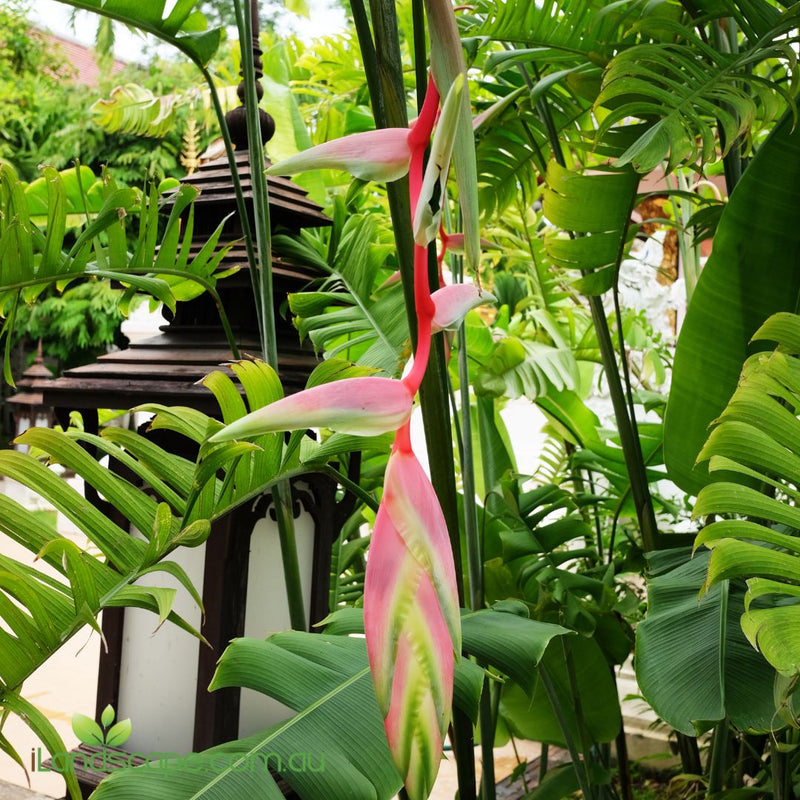
Top 10 Must-Have Tropical Plants for Queensland Gardens

Description:
Black Walnut (Juglans nigra) is a large, deciduous tree known for its distinctive dark bark, broad canopy, and valuable hardwood. Native to North America, this tree produces edible nuts encased in a hard shell and is often prized for its durable, richly-colored wood used in fine furniture. Black Walnut adds structure and shade to large landscapes and is a common choice for woodland and rural plantings.
Flowers:
In spring, Black Walnut produces small, yellow-green flowers. The male flowers appear as long, hanging catkins, while the female flowers are shorter and cluster near the branch tips. Although these flowers are not showy, they add seasonal interest to the tree.
Foliage:
The tree features large, pinnately compound leaves with 15 to 23 lance-shaped leaflets, each a vibrant green in spring and summer. In autumn, the foliage turns yellow, adding a touch of seasonal color. The leaves provide a light, airy canopy, creating filtered shade beneath the tree.
Fruit:
Black Walnut produces round, green husks that mature in autumn, encasing the hard-shelled walnut within. The nuts are edible but challenging to harvest and crack. The tree’s fruit production can create litter beneath the canopy, and the nuts attract wildlife, including squirrels and birds.
Form and Size:
This tree has a broad, rounded crown with a spreading growth habit. It typically reaches a height of 20 to 30 meters with a spread of 15 to 20 meters, making it suitable for large spaces. Its dark, deeply ridged bark adds texture and interest year-round.
Growing Conditions:
Black Walnut thrives in full sun and prefers deep, well-draining, fertile soil, though it can tolerate a range of soil types. It is drought-tolerant once established and can adapt to various climates but does best in temperate regions. Note that the tree produces a compound called juglone, which can inhibit the growth of certain plants nearby.
Uses:
This tree is ideal for shade, timber production, and wildlife habitats in large landscapes, parks, and rural areas. Its nuts are edible and often harvested for culinary use, and its wood is highly valued for woodworking and cabinetry. However, it may not be suitable for small gardens due to its size and juglone production.
Maintenance:
This tree requires little maintenance once established. Regular watering is beneficial in its early years, but mature trees are relatively drought-tolerant. Prune in late winter to remove any dead or crossing branches and promote a strong structure.
Notes:
Black Walnut is highly valued for its high-quality wood and nut production, but gardeners should be aware of its allelopathic properties due to juglone, which can inhibit the growth of sensitive plants nearby. Its large size makes it best suited for expansive spaces.
Companion Plants:
Care should be taken when planting near Black Walnut, as its juglone production can be toxic to certain plants. Juglone-tolerant plants include Pawpaw, Virginia Creeper, and Serviceberry. Avoid planting sensitive species such as tomatoes, potatoes, and certain ornamental flowers nearby.
Common Name: Black Walnut
Botanical Name: Juglans nigra
Family: Juglandaceae
Origin: Eastern North America
As we cannot guarantee stock all year around on Pots & Plants please hit us up via the chat button and we can get back to you with availability
Quantity:
Usually ready in 24 hours —
Delivery Options
Product Availability
Plants & Pots come and go all year around.
Where are our plants Grown and how do we grow them
How to Look after your plants like we do
